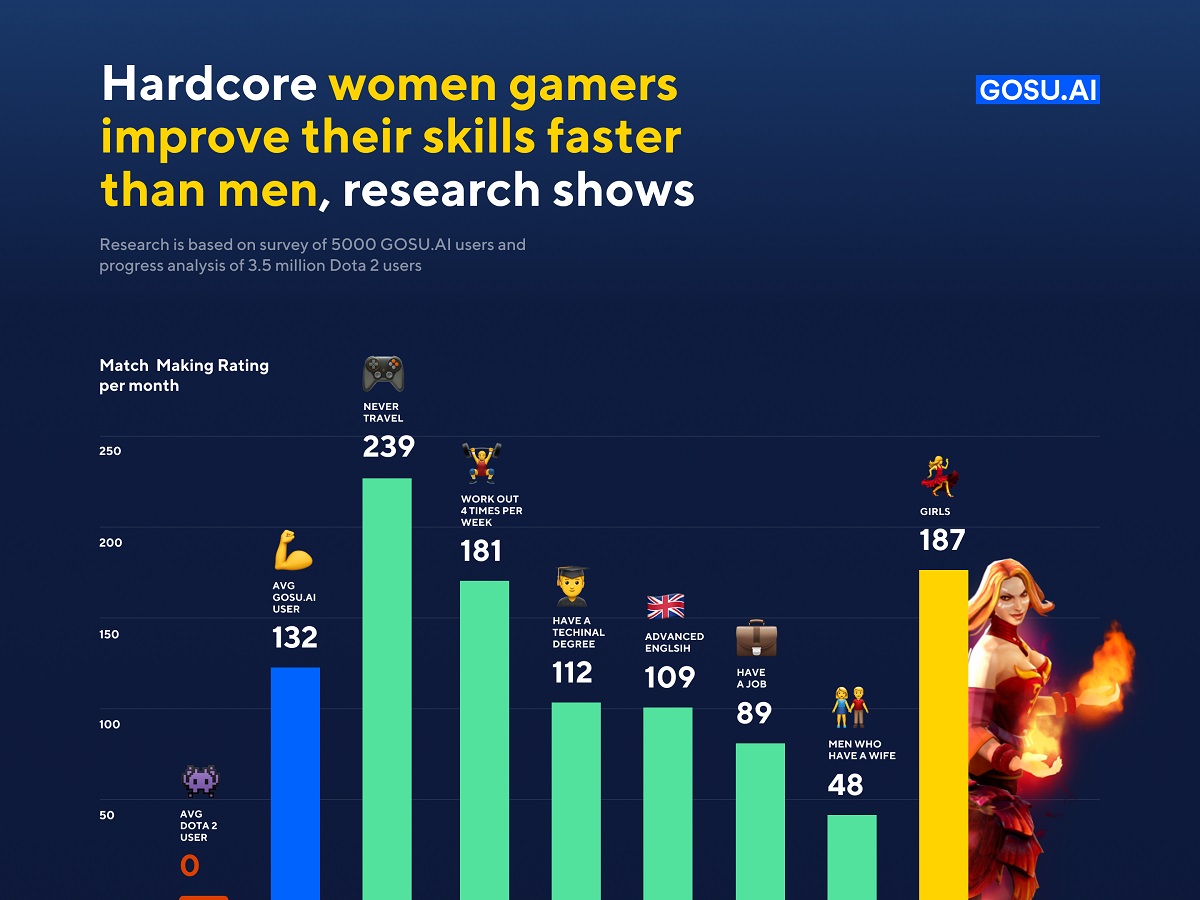Women gamers are better at improving their skills compared to men when it comes to playing Valve’s Dota 2 game, according to AI-based game coaching company Gosu.ai.
That’s one of the findings in a survey of nearly 5,000 gamers who play Dota 2, a popular multiplayer online battle arena (MOBA) game, where the goal was to understand what factors separate the good and the bad players.

Unlock premium content and VIP community perks with GB M A X!
Join now to enjoy our free and premium membership perks.
![]()

![]()